Milking 68 cows on a 32ha grazing block, Diarmuid Cremin was deemed the winner of the Kerry Agribusiness Quality & Sustainability Awards for 2020, taking home a prize fund of €2,500.
The judges noted that Diarmuid has made the best use of his natural resources despite farming some very heavy soils in a high-rainfall area.
Kerry Agri Sustainability Award Winner Diarmuid Cremin from Irish Farmers Journal on Vimeo.
Diarmuid and his wife, Irene, are farming at Cottage, between Gneeveguilla and Rathmore in east Kerry. A former monitor farmer in the Kerry/Teagasc joint programme, Diarmuid has spent his farming career focusing on the things he can control: soil fertility, drainage, EBI and grazing.
When he took over the farm in 2001, there were 88 acres in total. He describes 21 acres as being “right good land” and these are his go-to paddocks today.

The herd has an exceptionally high EBI.
He says there were 15 acres of “average land” and the rest was coarse, heavy soils. He decided to plant 31 acres of the heaviest land in forestry and, at the same time, secured a lease on 30 acres of better land adjoining the farm which he still farms today.
Another key decision he made was to install farm roadways and cow passes on all the land but, more importantly, on the good, dry land near the yard.
Prior to this, there was only one way into and out of this land which made it hard to graze in wet weather.

Diarmuid Cremin's farm, Gneeveguilla, Co Kerry.
The roadways are nothing fancy but they are incredibly effective and it means Diarmuid can graze the good land when the heavy land is too wet to graze and do so with minimal damage.
Despite improvements in infrastructure, grazing can still be a challenge and it’s usually mid-March before freshly calved cows can get to grass. Diarmuid has been measuring grass for years and, last year, the farm grew 14tDM/ha on average, despite the fact that 1m of rain fell on it between 1 July and 1 December last year.
All slurry is spread by contractor using a trailing shoe and it’s targeted on the fields with low phosphorus and potassium readings from the regular soil samples.
Protected urea was used for the first time last year and CAN is no longer being used. During the main grazing season, Diarmuid spreads 20 units/acre after the cows.

Winners and judges: James O'Connell from Kerry Agribusiness, Eilish Broderick from MTU, Diarmuid and Irene Cremin and Sean McCarthy from Kerry Agribusiness
Another area Diarmuid has been focusing on is breeding. The Cremin herd is one of the highest-EBI herds in the country with an average EBI of €218 at the May evaluation. Achieving this has been decades in the making, with the initial focus on RBI and then that switched to EBI when it was introduced in the early 2000s.
A key focus area when picking bulls is predicted transmitting ability (PTA) for fat and protein percentage.
Diarmuid says he looks at this and fertility sub-index more than the overall EBI when picking bulls. He has dabbled in some crossbreeding in the past but has mostly stuck with Holstein Friesian bulls because it is easier to sell calves in spring, which reduces the workload at this busy time of year.
His PTA for fat is 0.20% and it is 0.14% for protein, which is remarkably high for a Holstein Friesian herd.
This is reflected in his milk figures with protein at 3.80% and fat at 4.55% in 2020.
High solids milk is adding to his milk price, which was over 3c/l higher than the average Kerry supplier for the first five months of this year.
The herd supplied 490kg MS/cow last year, from a total of 850kg of meal. Extra meal is likely to be fed this year due to a more challenging spring and wet weather in May with 640kg of meal fed so far.
Fertility
performance
Fertility performance is also excellent, with no cows empty in 2020 and a staggering 97% calving in six weeks last spring.
However, Diarmuid couches this by saying that empty rate was poor in 2019 with 20% empty.
Milk quality
Milk quality is excellent, with SCC averaging 74,000 cells/ml in 2020 and TBC averaging just 6,000 cfu/ml.
Cows are milked through a 12-unit Dairymaster parlour which was installed in 2010 and housed in an adjacent roofed cubicle shed.
Diarmuid is helped out for a few hours a day in spring by a person from the Farm Relief Services and is also helped out by his sons when they are not in college or working.
Outside of farming, Diarmuid is active in the local Gneeveguilla community.
The judges noted that sustainability isn’t about excellence in just one area of the business. Diarmuid has a balanced approach to farming which delivers for his family and the environment in which they farm – people, animals and nature.
Best practice
Commenting on the awards, Pat Murphy, CEO of Kerry Group’s dairy company, said: “We launched this competition this year in recognition of our farmers adopting best practice at farm level on sustainability and we wanted to recognise that.
“Sustainability is important to us as a business and we want to put metrics in place on farm to monitor this over time with measurements such as EBI, milk solids, soil health and quality, efficiency measures managing nutrients and biodiversity, which all will be more important into the future and all need to be taken into account.
“I’d like to congratulate Diarmuid on being the first winner of our Quality & Sustainability Awards and it’s very obvious the focus Diarmuid has on grass, cows and the environment.”
The runners-up in the competition are Frank, Mary and Eoin Egan from Abbeydorney in Co Kerry and Tom Garry, from Ballynacally in Co Clare.
Milking 68 cows on a 32ha grazing block, Diarmuid Cremin was deemed the winner of the Kerry Agribusiness Quality & Sustainability Awards for 2020, taking home a prize fund of €2,500.
The judges noted that Diarmuid has made the best use of his natural resources despite farming some very heavy soils in a high-rainfall area.
Kerry Agri Sustainability Award Winner Diarmuid Cremin from Irish Farmers Journal on Vimeo.
Diarmuid and his wife, Irene, are farming at Cottage, between Gneeveguilla and Rathmore in east Kerry. A former monitor farmer in the Kerry/Teagasc joint programme, Diarmuid has spent his farming career focusing on the things he can control: soil fertility, drainage, EBI and grazing.
When he took over the farm in 2001, there were 88 acres in total. He describes 21 acres as being “right good land” and these are his go-to paddocks today.

The herd has an exceptionally high EBI.
He says there were 15 acres of “average land” and the rest was coarse, heavy soils. He decided to plant 31 acres of the heaviest land in forestry and, at the same time, secured a lease on 30 acres of better land adjoining the farm which he still farms today.
Another key decision he made was to install farm roadways and cow passes on all the land but, more importantly, on the good, dry land near the yard.
Prior to this, there was only one way into and out of this land which made it hard to graze in wet weather.

Diarmuid Cremin's farm, Gneeveguilla, Co Kerry.
The roadways are nothing fancy but they are incredibly effective and it means Diarmuid can graze the good land when the heavy land is too wet to graze and do so with minimal damage.
Despite improvements in infrastructure, grazing can still be a challenge and it’s usually mid-March before freshly calved cows can get to grass. Diarmuid has been measuring grass for years and, last year, the farm grew 14tDM/ha on average, despite the fact that 1m of rain fell on it between 1 July and 1 December last year.
All slurry is spread by contractor using a trailing shoe and it’s targeted on the fields with low phosphorus and potassium readings from the regular soil samples.
Protected urea was used for the first time last year and CAN is no longer being used. During the main grazing season, Diarmuid spreads 20 units/acre after the cows.

Winners and judges: James O'Connell from Kerry Agribusiness, Eilish Broderick from MTU, Diarmuid and Irene Cremin and Sean McCarthy from Kerry Agribusiness
Another area Diarmuid has been focusing on is breeding. The Cremin herd is one of the highest-EBI herds in the country with an average EBI of €218 at the May evaluation. Achieving this has been decades in the making, with the initial focus on RBI and then that switched to EBI when it was introduced in the early 2000s.
A key focus area when picking bulls is predicted transmitting ability (PTA) for fat and protein percentage.
Diarmuid says he looks at this and fertility sub-index more than the overall EBI when picking bulls. He has dabbled in some crossbreeding in the past but has mostly stuck with Holstein Friesian bulls because it is easier to sell calves in spring, which reduces the workload at this busy time of year.
His PTA for fat is 0.20% and it is 0.14% for protein, which is remarkably high for a Holstein Friesian herd.
This is reflected in his milk figures with protein at 3.80% and fat at 4.55% in 2020.
High solids milk is adding to his milk price, which was over 3c/l higher than the average Kerry supplier for the first five months of this year.
The herd supplied 490kg MS/cow last year, from a total of 850kg of meal. Extra meal is likely to be fed this year due to a more challenging spring and wet weather in May with 640kg of meal fed so far.
Fertility
performance
Fertility performance is also excellent, with no cows empty in 2020 and a staggering 97% calving in six weeks last spring.
However, Diarmuid couches this by saying that empty rate was poor in 2019 with 20% empty.
Milk quality
Milk quality is excellent, with SCC averaging 74,000 cells/ml in 2020 and TBC averaging just 6,000 cfu/ml.
Cows are milked through a 12-unit Dairymaster parlour which was installed in 2010 and housed in an adjacent roofed cubicle shed.
Diarmuid is helped out for a few hours a day in spring by a person from the Farm Relief Services and is also helped out by his sons when they are not in college or working.
Outside of farming, Diarmuid is active in the local Gneeveguilla community.
The judges noted that sustainability isn’t about excellence in just one area of the business. Diarmuid has a balanced approach to farming which delivers for his family and the environment in which they farm – people, animals and nature.
Best practice
Commenting on the awards, Pat Murphy, CEO of Kerry Group’s dairy company, said: “We launched this competition this year in recognition of our farmers adopting best practice at farm level on sustainability and we wanted to recognise that.
“Sustainability is important to us as a business and we want to put metrics in place on farm to monitor this over time with measurements such as EBI, milk solids, soil health and quality, efficiency measures managing nutrients and biodiversity, which all will be more important into the future and all need to be taken into account.
“I’d like to congratulate Diarmuid on being the first winner of our Quality & Sustainability Awards and it’s very obvious the focus Diarmuid has on grass, cows and the environment.”
The runners-up in the competition are Frank, Mary and Eoin Egan from Abbeydorney in Co Kerry and Tom Garry, from Ballynacally in Co Clare.






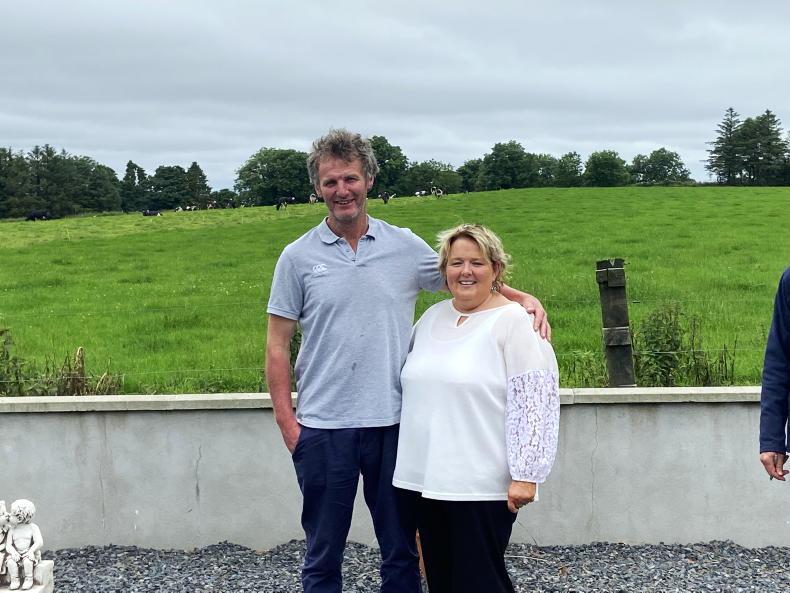

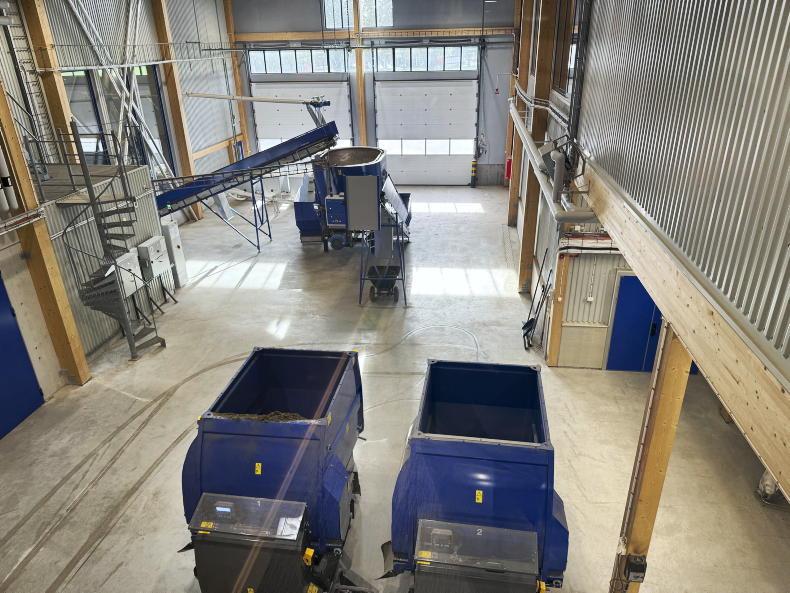

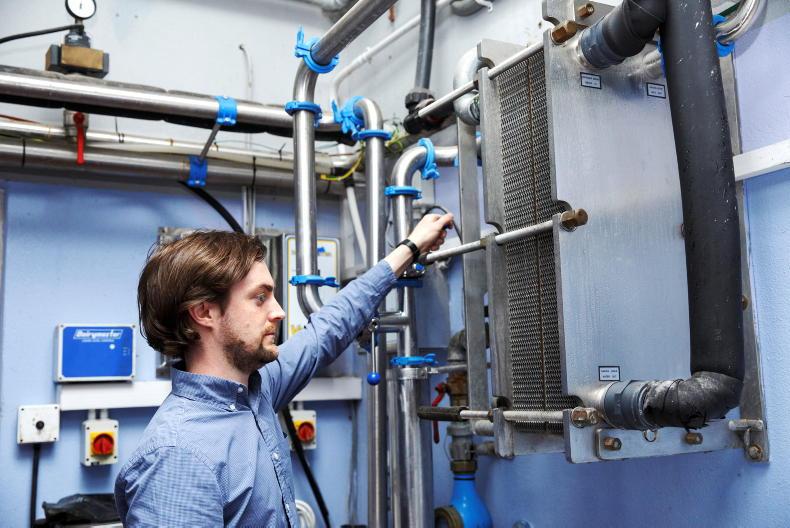
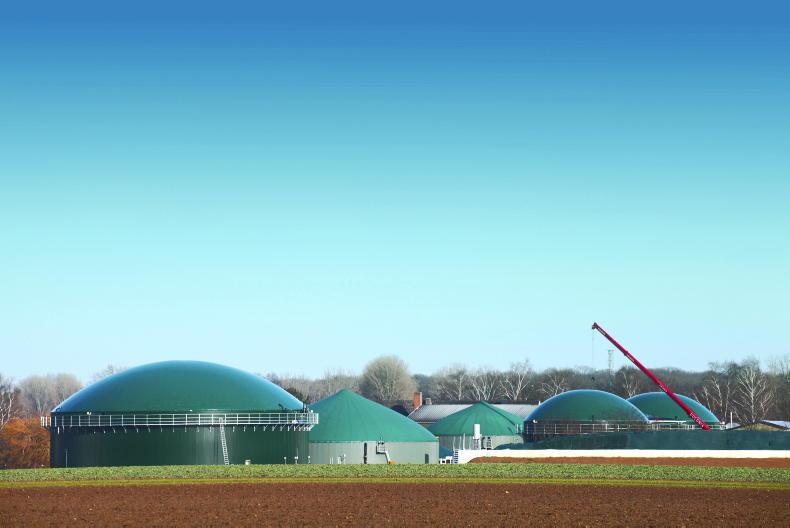
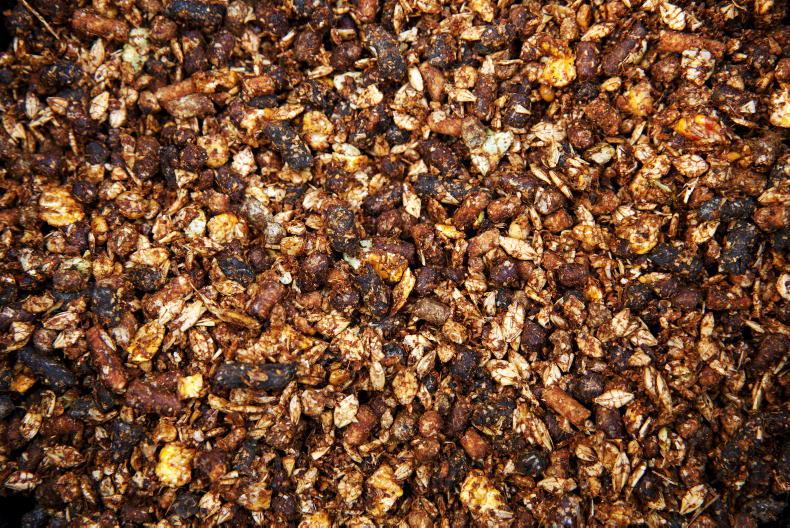
SHARING OPTIONS